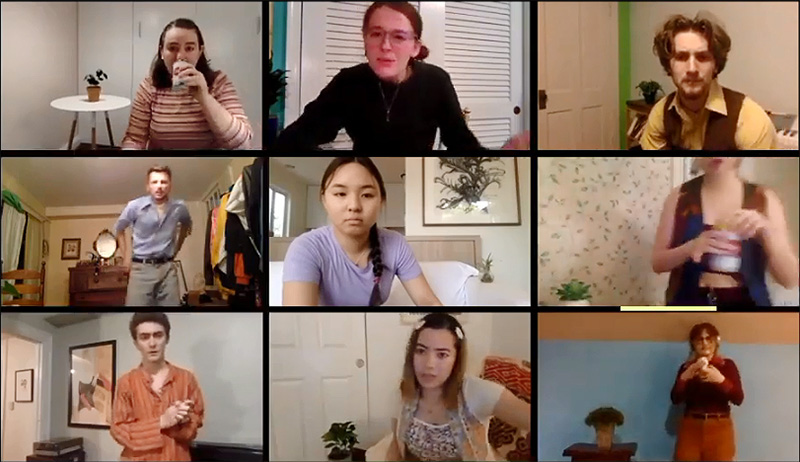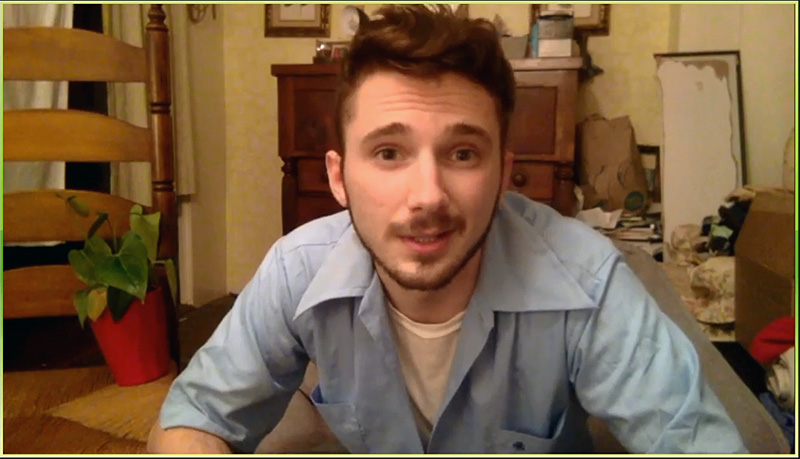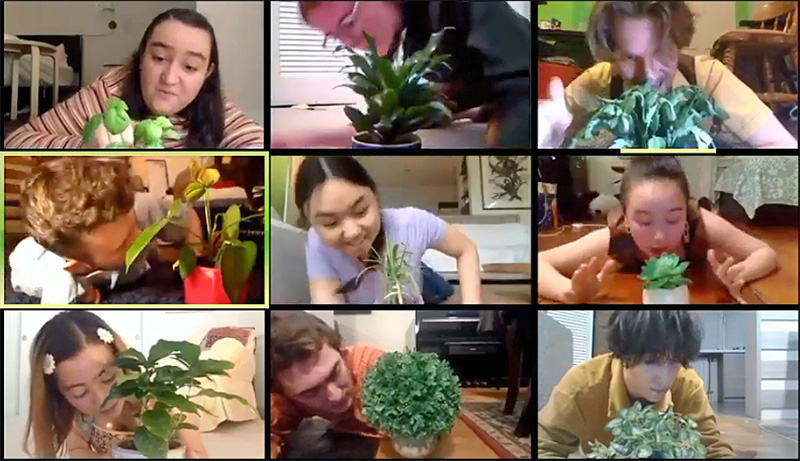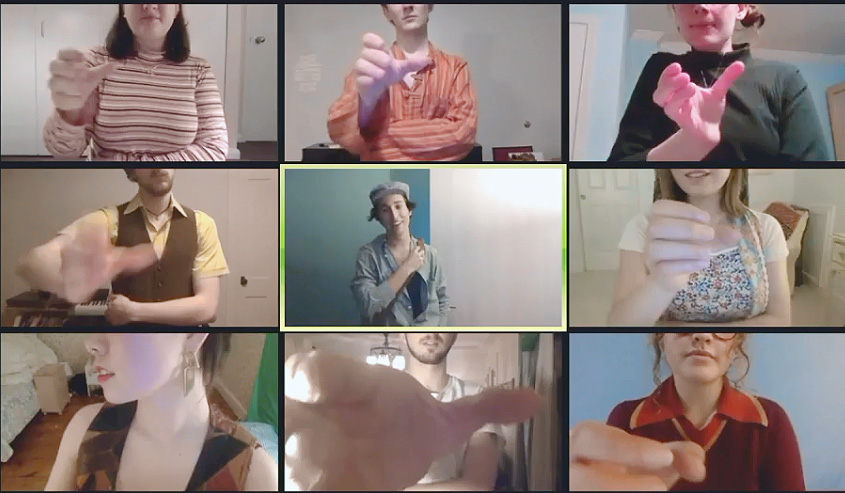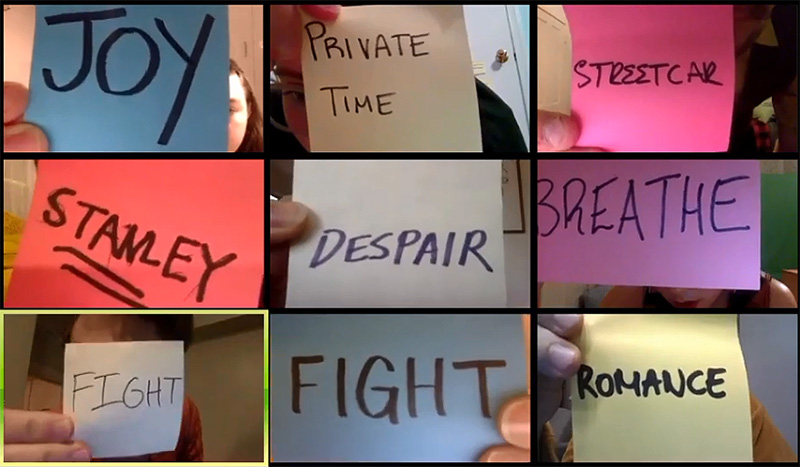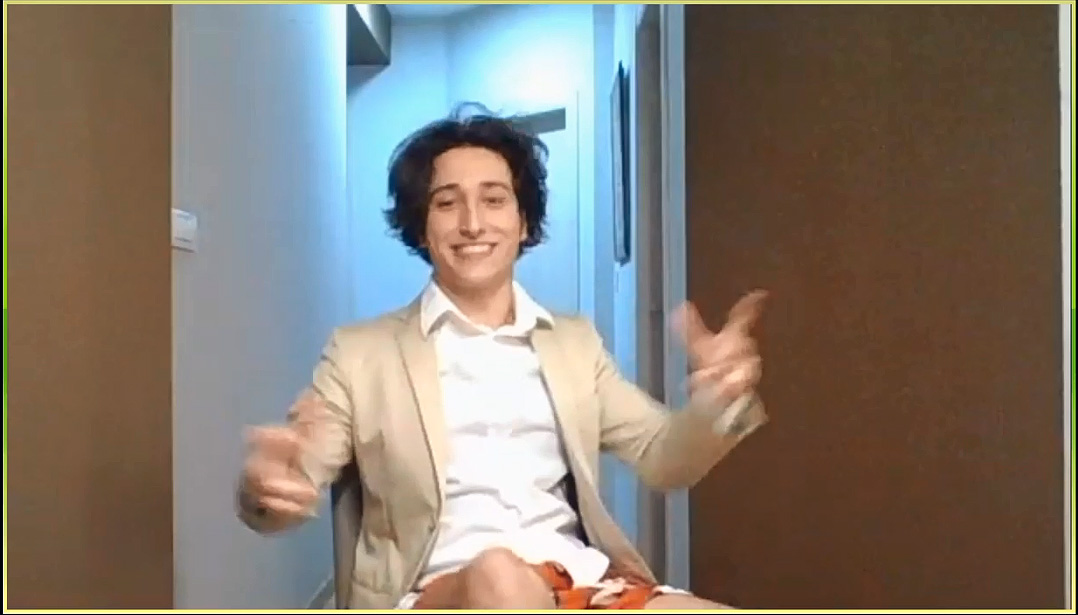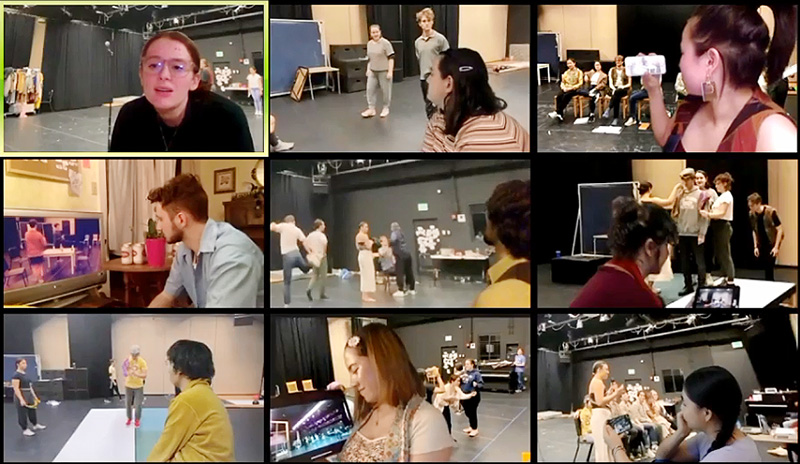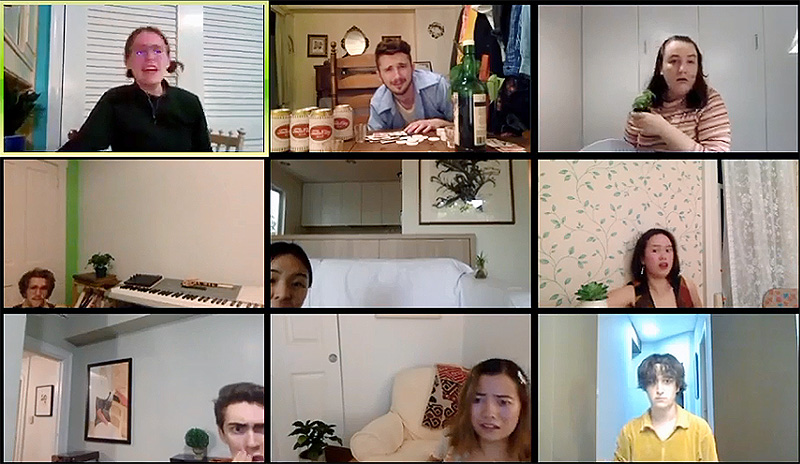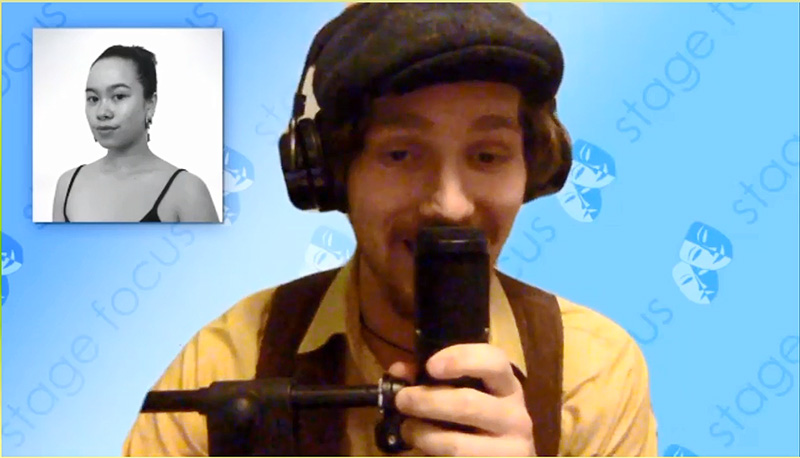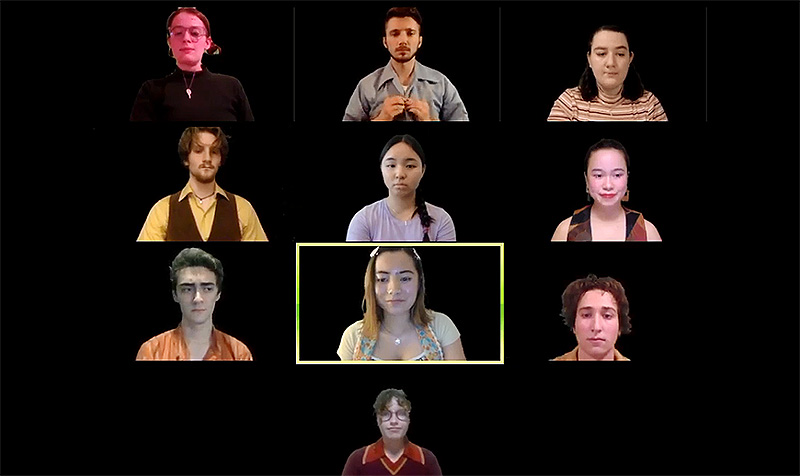Theater Department Produces, Livestreams The Method Gun

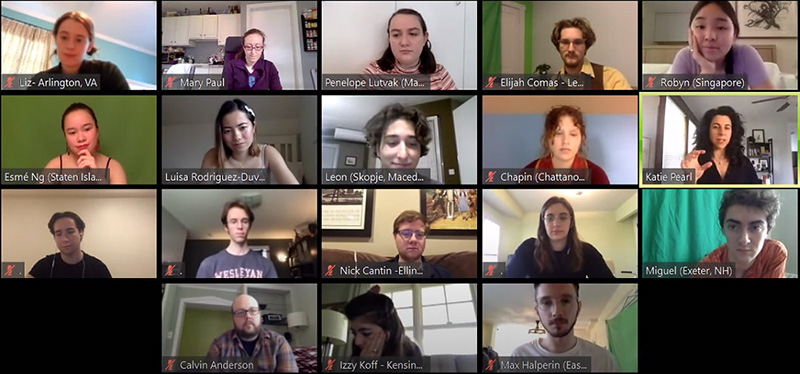
The shows must go on.
Rather than allowing the COVID-19 pandemic to force a final curtain call on theatrical productions, Wesleyan’s Theater Department pivoted to an online format. On May 1, and again on May 2, the department offered livestreamed performances of The Method Gun, featuring 10 student-actors.
A replay of the Saturday performance is available for viewing on The Method Gun @ Wes website.
After countless hours of line rehearsals, overcoming technical frustrations, and learning how to act and teach theater in a virtual world, show director and Assistant Professor of Theater Katie Pearl breathed a sigh of relief during the Thursday night dress rehearsal.
“I almost can’t believe what we pulled off,” Pearl said. “It was super down-to-the-wire. We were cutting and rewriting scenes up until the last minute and wrestling with livestreaming software, but it all came together on Thursday. For the first time, it really worked. And all of us just wept afterwards. Because we’d made a thing. We’d transcended what felt like an impossible situation, and stayed committed to each other and the process to create something that really meant what we wanted it to mean.”
Performers included Liz Woolford ’21, Leon Ristov ’21, Max Halperin ’20, Esme Ng ’22, Robyn Min Xuan Wong ’23, Miguel Perez-Glassner ’21, Elijah Comas ’22, Chapin Montague ’21, Luisa Rodriguez ’22, and Penelope Lutvak ’22. They were assisted by two student directors, a student stage management team, and student dramaturgs.
The students performed the livestreams at 8 p.m. and 2 p.m. EST, even though two actors were residing in Singapore and North Macedonia, and the group was operating on four different time zones. Had the play been on campus, the actors would have performed live in the Center for the Arts Theater.
Ng, who performed from her home in Staten Island, N.Y., found value in the performance moving to an online format: “One of the things I am hoping will come out of the fact that we were able to do this [online], is that theater-makers realize we can make space for accessible art,” she said. “It’s a way that doesn’t require people to show up to a theater, or travel to a different city.”
One of the major challenges of acting in isolation, and through the Zoom platform, was seeing fellow actors only through a computer monitor, and missing the physical and verbal expressions of a live audience.
Halperin, who performed in East Hampton, Conn. found the online-acting to be a major adjustment, but he learned to think of the computer’s camera as a person.
“You really have to direct to the camera all your energy, actions, and thoughts,” he said. “The monologue I have in the middle [is something] I really struggled with for a while because no one’s giving me anything. But the moments of channeling that frustration straight in, and really talking to people, and feeling like you’re talking to people this way helped me get through it.”
While transitioning to Zoom, Rodriguez, of Duvall, Wash. recalled the theater group having a discussion on digital intimacy. “You can’t ever make eye contact with other people. You’re either looking into the camera to address people,or you’re looking down at the other viewers or participants in the chat,” she said. “This is something I had to adjust to a lot, but once we got the hang of playing with the different aspects of technology, it became more fun.”
The Method Gun reenacts the rehearsals leading up to a performance of A Streetcar Named Desire, while the actors constantly question the mysterious disappearance of their acting teacher and guru Stella Burden. Through group scenes and monologues, the actors attempt to hold themselves together while the world crumbles around them, all the while practicing Burden’s infamous (and often comical) actor training tools—from kissing, to crying, to plant climbing, to self-isolation.
The Method Gun was originally written and performed by the ensemble-based theater collective Rude Mechs of Austin, Texas, in 2008. Pearl worked directly with Rude Mechs to create a special arrangement of the show for students to perform on the Zoom platform. The Rude Mechs, along with several Wesleyan faculty, students, staff, and parents, tuned in for the performance and participated in a live Q&A at the end.
“In retrospect, and in looking at the show now, I realize that the pandemic put the whole process in a kind of helpful pressure cooker. And in the intensity of this moment, in the epic-ness of the task to translate what we were doing to Zoom, alchemy happened,” Pearl said.
Scenes captured from the May 1 YouTube Live performance are pictured below.
